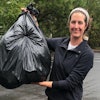
As planners navigate the latest best practices for virtual, hybrid and in-person events, one element that certainly can't be neglected is a clear marketing strategy. But how have the rules evolved in this new, socially distanced world?
 Rachel StephanPhoto: Courtesy of Rachel Stephan
Rachel StephanPhoto: Courtesy of Rachel Stephan
1. Recognize that community is your most powerful tool right now.
With virtual events, the planning timeline isn't the only thing that tends to be shorter; you probably have less time to create a robust marketing campaign too. Stephan says that these tight timelines are one of the main challenges when it comes to marketing virtual events in particular. “You no longer have the luxury of a few months to build up that campaign and messaging, and build the acquisition campaign,” she says, adding: “If people waited before for the last minute to register, now they're doing it more because they don't have to plan too far ahead; they can just decide to register the day before the event and hop on.”
Not to mention, you're likely dealing with tight budgets and increased competition in the virtual space. So what's the solution? Stephan advises tapping into your event's community—which she defines as "the people who are coming to the event, the actual stakeholders, the speakers, the partners. Everybody should play a role in marketing the event." Stephan thinks these kinds of peer-to-peer referrals, on top of the official marketing messages, offer a personal touch that's sorely needed right now.
“It’s about making the marketing more personal, and that's been more relevant than ever today," she explains. "We were all isolated and we need that connection with other people, human beings. The authenticity of the marketing message, and being real and human is really key.”
A lot of this community-led marketing can be accomplished through social media. "It's not what you are posting on social—it's who posted that makes a bigger impact,” notes Stephan. “Allowing your own community to generate some content on your behalf is really key. So part of the marketing is giving them something that makes them want to share stuff about the event.”
2. Embrace the chance to have a larger audience—and be ready to turn new attendees into devoted ones.
One of the undisputed benefits of virtual events is the ability to reach a larger—potentially global—audience. Of course, that also means you're competing with a whole world of events, rather than just locally. As a result, your marketing should have "even more emphasis on creating your own space and your own community, and driving that marketing message through that community," says Stephen.
In some cases, Stephan is seeing events unexpectedly double and triple their audiences in a virtual environment; people are often joining on a whim based on something they saw on social media or an advertisement, or are finally able to remotely join something they hadn't been able to travel for or afford previously. “People can see [an event] without having that much investment, other than their time," she explains.
Don't miss your chance to engage with these new attendees, Stephan adds. Use your marketing messages, social media and other communications to convert some of those casual viewers into devoted attendees who may attend an in-person event in future years. After all, more engaged attendees lead to a larger community that can help spread the word for you.
3. As we move into hybrid events, communicate clearly—and think through which element you want to promote first.
As vaccines continue to roll out and hybrid events become more widespread, audiences need to really understand the difference between the virtual and in-person experiences—and the value of each.
“Organizations are reevaluating some of their events because some of them are best delivered digitally and don’t necessarily warrant being in person,” explains Stephan. “Organizations need to look at their event portfolio and think, ‘Okay, this one is better suited for a digital delivery. And at this other one, face-to-face connections are really essential so that’s better in person.’ Or, figure out a program where the in-person event has a special experience that you can't replicate in the virtual environment."
While most planners seem to agree that hybrid events should go beyond simply livestreaming an in-person panel, many companies may be focusing more attention on generating in-person audiences, which likely require extra logistical challenges—and attendee communication—due to pandemic restrictions. For a campaign surrounding a hybrid event in September, Stephan is thinking carefully about the best times to promote the two different components.
“We don't want to start promoting the virtual right off the bat right now, because we want people to still register for the event to come there,” she explains. “So there's a nice space and timeline that needs to be put in place to be able to synchronize how the messages go and play on that psychology—making it clear what you get if you register early and go to the in-person, versus what you're going to get if you're doing the virtual side.”
4. Safety protocols need to be a part of the marketing message for in-person events.
The reality is that COVID-19 is still here, and will be for the foreseeable future—as will many attendees’ fear of attending an in-person event. Like most things, the key is being clear, transparent and human. “I'm going to need to be convinced quite a bit before I book that ticket and go to the next event,” says Stephan. “So part of event marketing is the reassurance that needs to also be communicated, the transparency, and then the clear protocols and clear procedures that will reassure me to say, ‘Okay, if I go to this I'll be okay.’"
She continues, “So, we're adding a layer to not just communicating what the event is going to be, but also how are you going to protect me if I go there.”



















